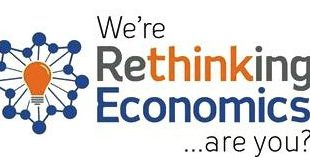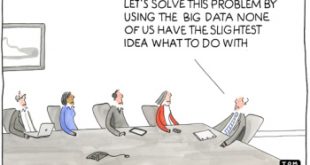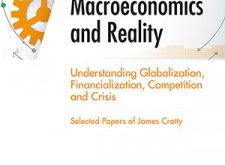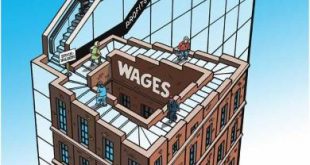Swedish economics establishment and pluralism in economics In the latest issue of Fronesis yours truly and a couple of other academics (e.g. Julie Nelson, Tony Lawson, and Phil Mirowski) made an effort at introducing its readers to heterodox economics and its critique of mainstream economics. Rather unsurprisingly this hasn’t pleased the Swedish economics establishment. On the mainstream economics blog Ekonomistas, professor Daniel Waldenström today rode...
Read More »Confusing statistics with research
Confusing statistics with research Coupled with downright incompetence in statistics, we often find the syndrome that I have come to call statisticism: the notion that computing is synonymous with doing research, the naïve faith that statistics is a complete or sufficient basis for scientific methodology, the superstition that statistical formulas exist for evaluating such things as the relative merits of different substantive theories or the “importance”...
Read More »‘Rigorous’ evidence — often worse than useless
‘Rigorous’ evidence — often worse than useless So far we have shown that for two prominent questions in the economics of education, experimental and non-experimental estimates appear to be in tension. Furthermore, experimental results across different contexts are often in tension with each other. The first tension presents policymakers with a trade-off between the internal validity of estimates from the “wrong” context, and the greater external validity of...
Read More »Why the realism of assumptions do matter
Why the realism of assumptions do matter Few economists think about methodology, but the methodological foundation of neoclassical economics is Milton Friedman’s (1953) version of ‘positivism.’ Positivism asserts two important theses. First, neither the extent to which the assumption set of a theory incorporates all the core elements of the phenomenon under investigation, nor the institutional or behavioral or empirical realism of the assumptions adopted...
Read More »Sticky wages is not the problem!
Sticky wages is not the problem! The stickiness of wages seems to be one of the key stylized facts of economics. For some reason, the idea that sticky wages may be the key to explaining business-cycle downturns in which output and employment — not just prices and nominal incomes — fall is now widely supposed to have been a, if not the, major theoretical contribution of Keynes in the General Theory. The association between sticky wages and Keynes is a rather...
Read More »Jag bor på Sturegatan så det är lite mening med vad jag säger
Jag bor på Sturegatan så det är lite mening med vad jag säger [embedded content] Ständigt efterfrågad favorit i repris … Advertisements
Read More »Higher — not lower — wages could be the answer
Higher — not lower — wages could be the answer The general view of most policymakers and analysts is that if firms, in aggregate, increase workers’ wages before there has been an increase in national productivity, the result will simply be a damaging burst of economy-wide inflation as too much money chases too few goods and services. This is the kind of description of the way the world works that one can find from economic authorities such as the Bank of...
Read More »Wage cuts — the ultimate atomistic fallacy
Wage cuts — the ultimate atomistic fallacy The world has been slow to realize that we are living this year in the shadow of one of the greatest economic catastrophes of modern history. But now that the man in the street has become aware of what is happening, he, not knowing the why and wherefore, is as full to-day of what may prove excessive fears as, previously, when the trouble was first coming on, he was lacking in what would have been a reasonable...
Read More »On the importance of chasing miracles (personal)
On the importance of chasing miracles (personal) [embedded content] One of my absolute favourites. A gem of a movie. This one is for my son David, who almost by miracle survived the St Petersburg metro bombing yesterday. Advertisements
Read More »Wren-Lewis and austerity dodging
Wren-Lewis and austerity dodging In the ongoing austerity debate, Brad DeLong told Simon Wren-Lewis the other day to stop dodging and instead squarely face the fact that most mainstream economists who were heard in the public sphere were not against austerity, but rather split, with, if anything, louder and larger voices on the pro-austerity side. But Wren-Lewis still thinks neither people outside economics, nor economists, know how representative of the...
Read More » Lars P. Syll
Lars P. Syll








